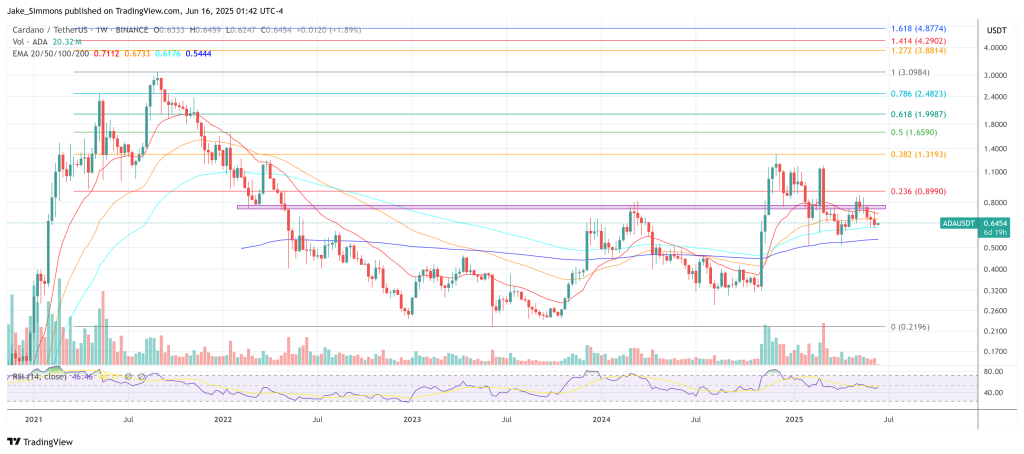In an AMA on June 15, Charles Hoskinson declared Argentina the one most promising frontier for Cardano’s growth, citing a confluence of political reform, crypto-driven financial liberalization, and Cardano’s entrenched presence on the bottom. The IOG founder positioned Argentina because the platform’s subsequent main strategic play after years of foundational work throughout Africa—arguing that the stakes, scale, and timing in Latin America now far exceed these of previous initiatives.
Argentina Is Cardano Territory Now
“Argentina is likely going to be the first country of the modern era to have private money over central banks,” Hoskinson said, contrasting it immediately with different so-called crypto nations. “That’ll all be cryptocurrencies for private money,” he added, noting that almost $100 billion of Argentina’s $700 billion GDP is now in crypto.
He credited a lot of this transformation to President Javier Milei, whom he praised in strikingly idealistic phrases: “Our good friend down in Argentina, Milei, did not let the people down. He did quite the opposite. He actually got it done […] He opened his economy up.” Hoskinson went as far as to name Milei “the prince that’s promised”—a notable departure from his way more crucial remarks on different nationwide leaders like El Salvador’s Nayib Bukele, whom he described as “authoritarian” and “opaque.”
The distinction between the 2 couldn’t be sharper. Whereas El Salvador obtained widespread media protection for making Bitcoin authorized tender, Hoskinson dismissed its relevance: “Let me get this straight—a dictator who stayed in office longer than the Constitution permitted […] who arrests any of his political opponents […] that’s Bitcoin Land?” He added, “Where’s the blockchain transparency? Where are the audits? Is that real Bitcoin or ‘Chivo’ Bitcoin?”
Against this, Argentina’s pivot is, in his eyes, structurally aligned with Cardano’s ethos. He emphasised that Milei doesn’t simply tolerate crypto; he actively disintermediates central banks, encouraging a system the place “you don’t need to pass a law—just do it.”
Cardano, Hoskinson argued, already holds a strategic first-mover benefit within the area. “We had the largest office of any cryptocurrency in the top 10 in Buenos Aires,” he stated. “A 100-person office that we set up in the old Google office. All politicians came and said, ‘Wow, these guys are serious.’” That popularity, he asserted, offers Cardano not solely credibility however leverage in shaping the blockchain infrastructure throughout Latin America.
Whereas Hoskinson acknowledged previous challenges in Africa—significantly the derailment of Ethiopia’s blockchain ambitions as a consequence of political instability—he maintained that IOG and Cardano have discovered from these early setbacks. “Africa still is in the portfolio,” he confirmed. “But we’re a lot wiser now.” The brand new technique emphasizes microcredit, funds, and sustainable, bottom-up fintech slightly than fragile authorities partnerships.
Returning to Argentina, Hoskinson identified that the political circumstances now allow actual adoption at scale, with infrastructure and training already underway. He left little question about Cardano’s readiness: “We’re not going to lose this. We’re going to move quickly.”
At press time, ADA traded at $0.645.

Featured picture from YouTube, chart from TradingView.com

Editorial Course of for bitcoinist is centered on delivering completely researched, correct, and unbiased content material. We uphold strict sourcing requirements, and every web page undergoes diligent overview by our staff of high know-how specialists and seasoned editors. This course of ensures the integrity, relevance, and worth of our content material for our readers.


